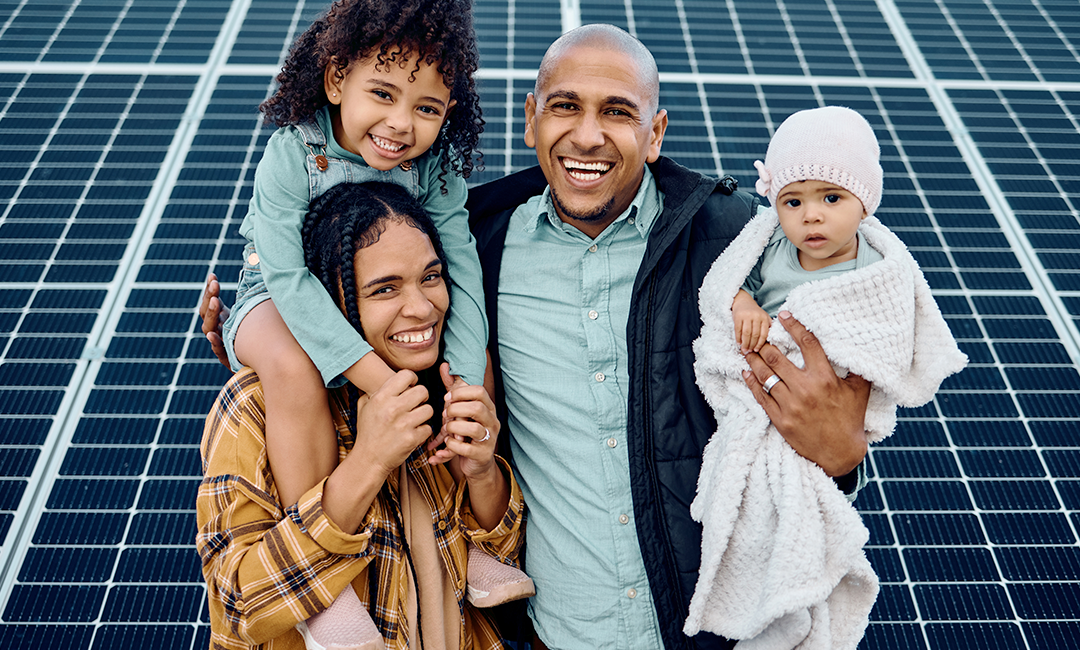How do you Maximize the Efficiency of Your Home Solar System? After all, it’s not a set-it-and-forget-it kind of investment. If you take care of your solar power system, it will serve you for decades.
You might have heard of getting the most out of your system, and you need high-efficiency monocrystalline photovoltaic cells, state-of-the-art microinverters, and a high-tech power wall. That is not entirely accurate. Those tips are somewhat misleading without context. Let’s give you all the information you need so you can make the best decision for you.
In this blog, you’ll learn:
- How solar panel and solar system efficiency works
- How solar panels naturally degrade
- How installers like us design efficient systems from the ground up
- How you can ensure the long and productive life of your system
- And actionable steps to get the absolute maximum out of your system.
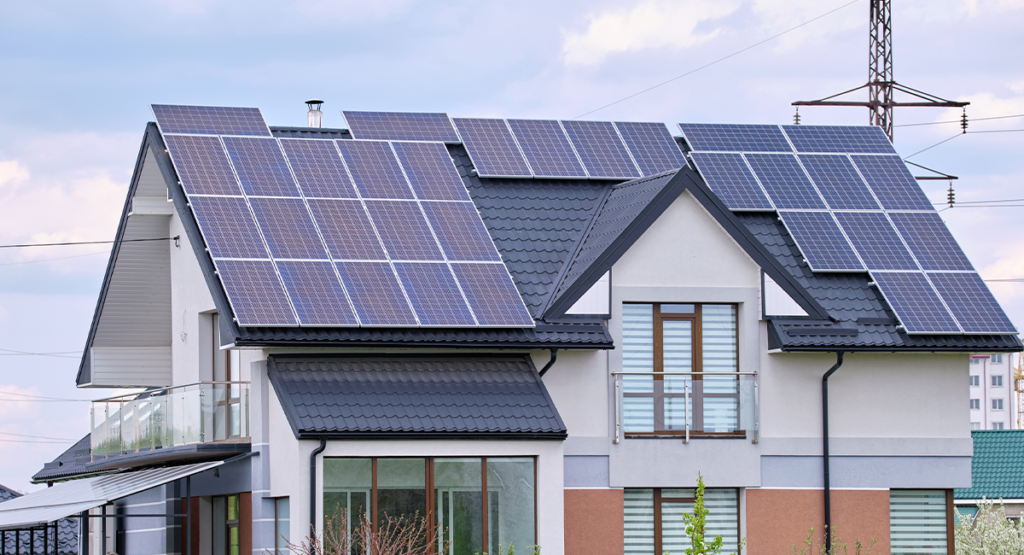
How Solar Panel Efficiency Differs From Solar System Efficiency.
Conversion efficiency is the efficiency with which solar panels convert sunlight into electricity. Manufacturers determine this by measuring their products in ideal testing conditions.
Most solar panels today have a conversion efficiency of around 19 to 22%. Only about a fifth of all the sunlight that hits a panel will be converted into usable electricity. That may not sound like a lot, but a single panel can produce 350 to 450 watts during peak sunlight hours. That adds up.
FUN FACT: The first photovoltaic cell was invented in 1883, over 140 years ago! It had a conversion efficiency of less than 1%. Solar didn’t become a viable source of power until the 1950s. If you’re curious about how the magic happens, check out How Do Solar Panels Actually Work.
Your system’s efficiency is determined by how much energy is produced when it is first installed. All electronic equipment naturally degrades, so its best performance will be when it’s shiny and new. Down the road, you can compare its current performance to its best performance. However, most monitoring software automatically does this for you.
How Do Solar Panels Naturally Degrade, And How Can We Prevent It?
The main perpetrator is exposure to ultraviolet (UV) light. Ironic, isn’t it? UV light slowly damages the photovoltaic cells and reduces their ability to absorb sunlight.
Solar systems lose around 2.5% of their efficiency within the first year. That’s normal and to be expected. Every following year, this results in around 0.5% degradation. Again, that is mainly from UV light. After 25 years, you can expect your system to run at 85.5% of its original efficiency. And that’s how power performance warranties work.
Power performance warranties are different from the product warranties manufacturers provide. They are commitments made by the installers. They’re essentially a promise that “after 25 years, your system will still operate at 80%, and if it doesn’t, we’ll fix it.”
You cannot prevent degradation, but regular and routine maintenance is the best way to slow it down.
You should know about degradation because it will affect your payback period and return on investment. Depending on the size, most systems pay for themselves within 9 to 11 years, meaning you have 16 to 14 years to earn a return on your investment. However, if you don’t care for your system, that payback period may extend past 12 years.
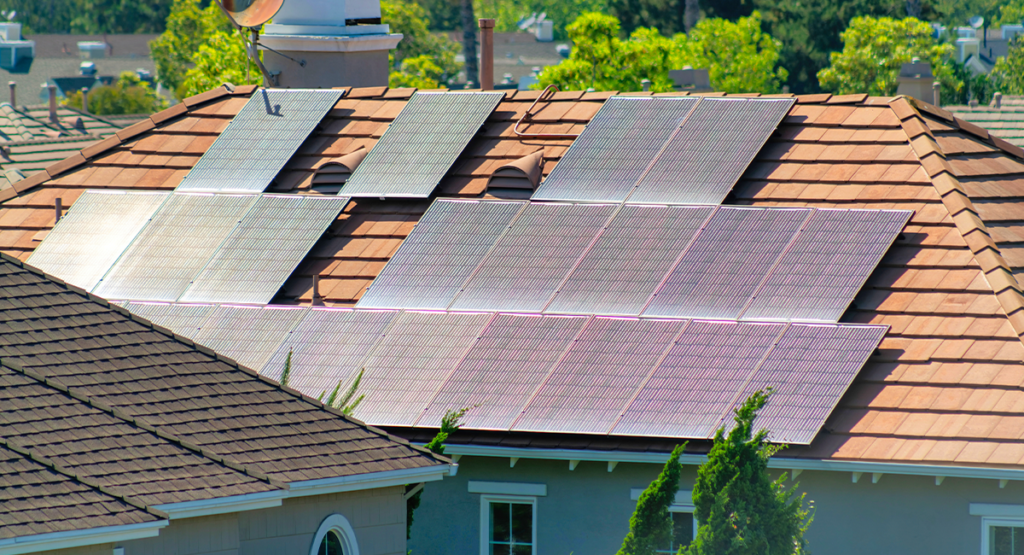
How Installers Like Us Design Efficient Systems From The Ground Up.
If you’ve Googled “how to maximize your solar system’s efficiency,” you might’ve fallen into the rabbit hole of “9 tips to ensure maximum efficiency.” They often say you must find the perfect orientation for your system and use the most efficient panels. However, that is not practical advice because good solar installers will do that for you.
Our job as installers is to design an efficient system. We do this by examining your energy usage to design around your needs. Then, we find the optimal orientation, choose the right equipment, and ensure it addresses your needs. After installation, we provide continuous support. We might recommend trimming some trees or pruning some foliage to minimize shade.
Of course, there’s a lot more to designing a solar system. However, if you’re curious about how many solar panels you’ll need, we have an article for you!
In short, a good installer will give you a sound, efficient system.
How Can You Ensure Your Residential Solar Power System Lives A Long And Productive Life?
The best thing you can do is periodically check your solar monitoring software. We include a smart home monitoring system with every residential installation. The app lets you view your system’s status, power output, consumption, daily energy production, and lifetime production.
A monitoring application helps you catch dips in performance and fix them before they snowball.
Some dips are to be expected. You’ll produce less power on a rainy day than on a sunny one. However, if you notice that your system is 4% less efficient than it was this time last year, then you’ll need to check your system. We know that 4% exceeds the expected degradation, so something must be up. Check your cables and your equipment to make sure everything looks good. You can also call your installers, and they’ll troubleshoot for you. Sometimes, it’s best to leave troubleshooting to the professionals.
The second best thing you can do is routine cleaning; luckily, cleaning is pretty easy! First, power down your system for safety. Rinse the solar panels with water and scrub them with very soft materials. Once you are done cleaning, visually inspect the panels, wiring, and equipment to ensure nothing is damaged. Turn your system back on when the panels are fully dry.
We recommend cleaning at dawn, dusk, or on a cloudy day. No soaps, harsh chemicals, power washers, or abrasive scrubbers are needed. Soaps leave a film; everything else can damage the surface. All of which lowers efficiency.
You basically need to hose down your panels. However, mixing water and ladders can be dangerous. Specific pieces of equipment might have specific recommendations. Hiring professional cleaners or seeing if your installers can clean them might be best. Outsourcing can cost between $150 to $350 per visit.
How often you should clean your panels depends on your location. Generally speaking, twice a year is exemplary. Sometimes, rain can clear off all that dust, pollen, pollution, and bird droppings. Dust might accumulate faster if you live in a dry and arid place like Arizona. Four times a year might be more appropriate in that case.
A simple rinse may sound inconsequential in the grand scheme of your solar system. However, research shows that avoiding cleaning can reduce efficiency by 25%!
What Are Some Actionable Steps To Get The Absolute Maximum Out Of Your System?
These tips fall into two categories: adjusting habits and home improvements.
You can adjust your habits to be more energy-conscious. That means doing high-energy activities during peak sunlight hours. For example, you can charge an electric vehicle during the day. If you run on a home treadmill, do so when daylight is out.
You could also run appliances sequentially instead of simultaneously. Running your dryer and dishwasher simultaneously increases the chances that your power system will dip into its reserves. That can be your battery or the wider grid. Running them at separate times minimizes energy consumption.
You can make many home improvements to maximize your home’s overall efficiency. Cooling and heating consume the most energy. You can provide better insulation around your ductwork. You could insulate areas of high heat transfer, such as the attic, crawl space, and basement.
You can also update the doors and windows with newer, more efficient versions. Older houses often have drafty windows that may require new frames. Some newer windows are manufactured with Low-emissivity (low-e) coatings to minimize heat transfer. They only cost around 15% more but can reduce heat transfer by 30% to 50%.
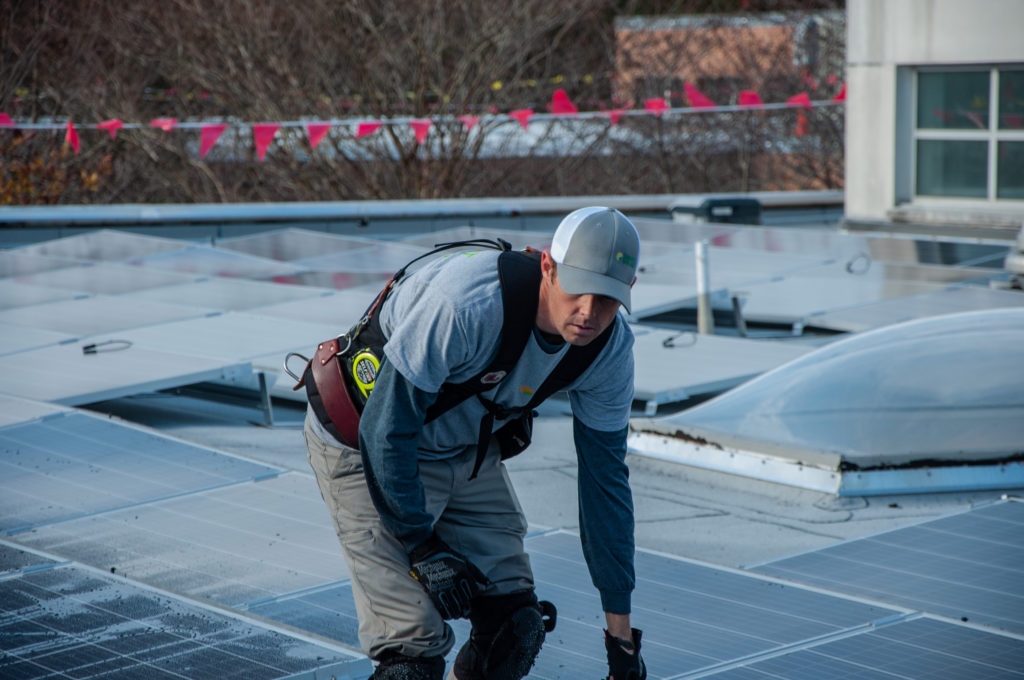
Final Thoughts: If You Take Care Of Your Solar Power System, It Will Take Care Of You.
Let’s get your project rolling if you’re ready for energy independence! Request a solar site assessment to start designing your system. If you have any questions, concerns, or curiosities, please contact us at (757) 447-6527.
